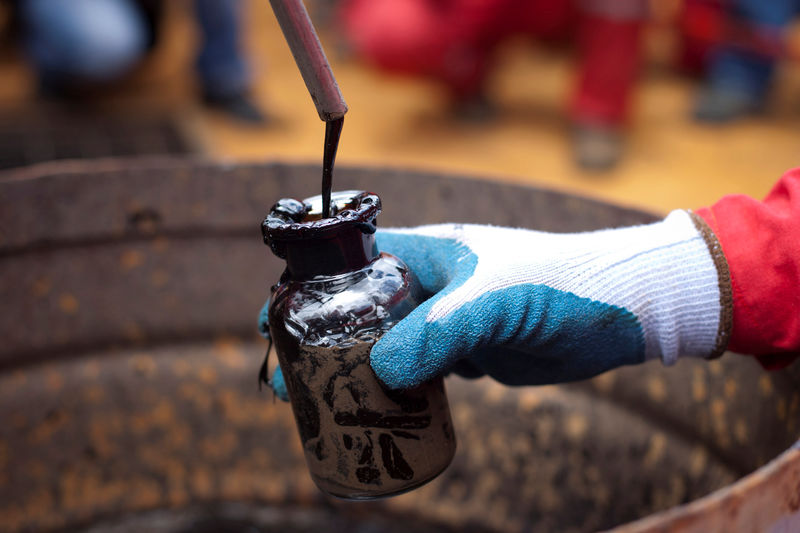By Alex Lawler
LONDON (Reuters) - OPEC oil supply hit a four-year low in April, a Reuters survey found, due to further involuntary declines in sanctions-hit Iran and Venezuela and output restraint by top exporter Saudi Arabia.
The 14-member Organization of the Petroleum Exporting Countries pumped 30.23 million barrels per day (bpd) this month, the survey showed, down 90,000 bpd from March and the lowest OPEC total since 2015, the Reuters survey showed.
The survey suggests that Saudi Arabia and its Gulf allies are maintaining even larger supply cuts than called for by OPEC's latest deal, shrugging off pressure from U.S. President Donald Trump. On Friday, Trump said he had called OPEC to tell the group to bring down prices.
Crude oil is trading above $73 a barrel and hit a six-month high above $75 last week, boosted by Saudi supply restraint and curbs in Venezuela and Iran, which face U.S. sanctions that are limiting their exports.
"The Iran sanctions come on top of already fragile supplies and raise concerns about tightening markets," Norbert Ruecker of Swiss bank Julius Baer said.
OPEC, Russia and other non-members, an alliance known as OPEC+, agreed in December to reduce supply by 1.2 million bpd from Jan. 1. OPEC's share of the cut is 800,000 bpd, to be delivered by 11 members - all except Iran, Libya and Venezuela.
In April, the 11 OPEC members bound by the agreement achieved 132 percent of pledged cuts, the survey found, compared to 145 percent in March, due to higher production in Nigeria and small increases in Saudi Arabia and Iraq.
(GRAPHIC: OPEC oil supply curbs - pledged versus delivered - April 2019 - https://tmsnrt.rs/2DIWEwa)
The latest OPEC+ deal came just months after the group agreed to pump more oil, which in turn partially unwound their original supply-limiting accord that took effect in 2017.
IRAN DROP
Lower supply in two of the exempt producers, Iran and Venezuela, more than offset gains elsewhere. Iran posted OPEC's biggest supply drop this month of 150,000 bpd, the survey found.
Iran's crude exports dropped in April to their lowest daily level this year, suggesting buyers are curbing purchases before Washington clamps down further on Iranian shipments as expected next month.
The United States decided last week not to renew exemptions from sanctions against Iran granted last year to buyers of Iranian oil, taking a tougher line than expected. As a result, Iranian exports are expected to fall further in May.
In Venezuela, supply fell by 100,000 bpd due to the impact of U.S. sanctions on state oil company PDVSA and a long-term decline in production, according to the survey. Venezuela was once a top-three OPEC producer.
Top exporter Saudi Arabia raised output slightly in April from March, although Riyadh continued to deliver larger cuts than required under the supply deal, as did Gulf allies the United Arab Emirates and Kuwait.
Saudi Arabia has said it would replace losses in Iran and Venezuela but is wary of pumping more unless there is customer demand. Energy Minister Khalid al-Falih on Tuesday said the kingdom will not rush to boost supply to make up for Iran.
OPEC's biggest production gain occurred in Nigeria, where Total's Egina field has helped boost output. Libya, the third producer exempted from making voluntary curbs, also boosted output.
Nigeria says the Egina field produces condensate, a type of light oil excluded from the OPEC cuts. The survey includes the field based on Total's listing of it as a crude producer.
Smaller producers Congo, Ecuador and Gabon also pumped above their targets, the survey found.
April's output is the lowest by OPEC since February 2015, excluding membership changes that have taken place since then, Reuters surveys show.

The Reuters survey aims to track supply to the market and is based on shipping data provided by external sources, Refinitiv Eikon flows data and information provided by sources at oil companies, OPEC and consulting firms.